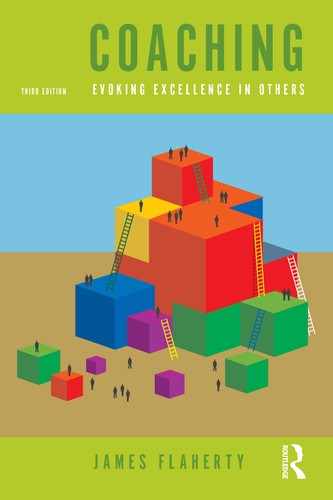The challenges in writing a book on coaching are the same as those one faces when beginning to coach:
- How to say something distinct enough to foster change and yet familiar enough to be understood.
- How to say something linearly (the organized form of nearly any book) that can only be fully understood holistically or systemically.
- How to show something meant to evoke a paradigm shift in a way efficient (cogent) enough to maintain interest.
In other words, how to be heard saying something well beyond quick techniques in a world clamoring for them. The list could go on, as you well know if you’ve ever attempted to evoke excellence from someone else—if you’ve ever tried to coach someone. However, the job of a coach is always to speak about/ show what can happen and to do so in a way that frees people to take action.
We are all too familiar with constraints in our world. In fact, it often seems that the more aware/experienced/informed we become, the more convinced we are that it will take more awareness, experience, and information before we can overcome constraints, be fulfilled in our work, and bring meaning to our lives (see Figure I.1).
And of course, the circle, frequently vicious, as you’ve probably noticed, is at first about ourselves only, but later, it becomes a constraint to our coaching of others.

FIGURE I.1 The Constraints of Learning
Doesn’t it seem that the more books we study, the more we self-diagnose as having whatever the syndrome is that the author describes? For the same reason, reading medical textbooks is much more frightening than reading Edgar Allan Poe or Stephen King.
Keep this in mind as you read the following chapters. Do you find yourself more constrained? Are the distinctions showing you more reasons why something cannot happen? Or, are you finding yourself more free to take action? Of course, these are the same questions to ask when you’re coaching someone.
When you find yourself constrained/confused/in disagreement, I invite you to ask yourself the following questions: “What way of seeing this topic am I attached to or defending?” and “What would happen if I saw it this new way?” Keep working with yourself in this way as you read this book and you’ll find yourself more competent by the end.
